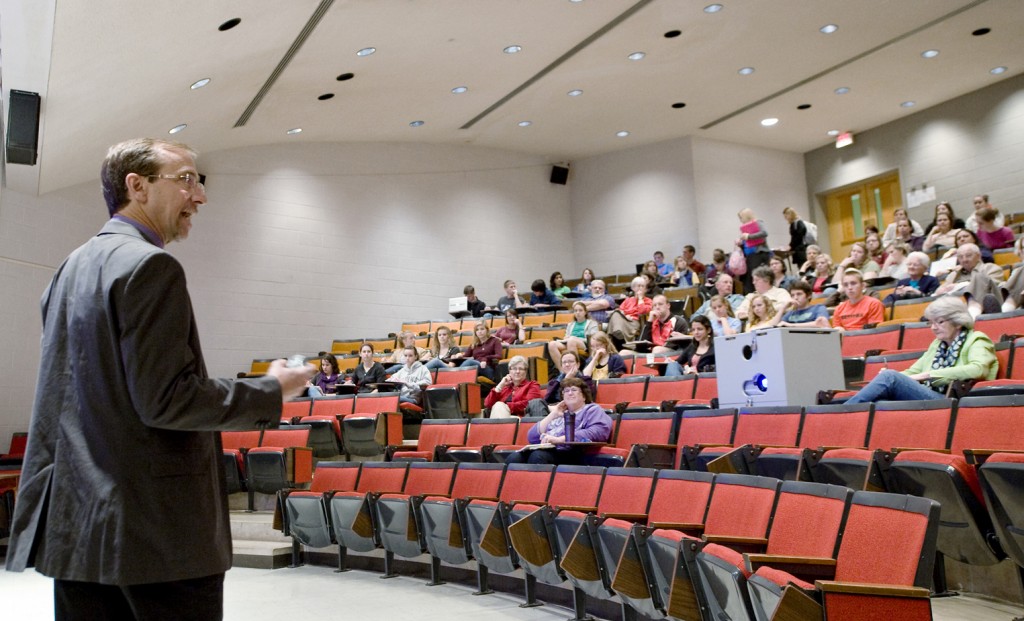Courtesy Daily News Record, April 3, 2012
Nearly 100 students, faculty and sufferers of post-traumatic stress disorder gathered at Eastern Mennonite University on Friday to hear an alumnus discuss his federally funded research on the illness.
Christopher Reist, an associate professor at the University of California at Irvine and director of medical research for the Long Beach Veterans Affairs Healthcare System, graduated from EMU in 1980 and from the Medical College of Virginia four years later. A psychiatrist by training, Reist has focused on PTSD for most of his career.
PTSD is an anxiety disorder triggered by severe trauma and often characterized by social detachment, emotional “numbing,” nightmares and flashbacks. The illness can be triggered by sexual abuse, serious accidents or any other type of trauma.
But for many, the condition is most closely associated with combat veterans.
PTSD gained prominence in the 1970s and ’80s as a growing number of Vietnam veterans openly discussed their struggle with what used to be called “battle fatigue” or “shell shock.” The disorder has been in the spotlight again in recent years due its diagnosis in thousands of veterans of the Iraq and Afghanistan wars.
“We’re really reaching out to them aggressively,” Reist said of returning veterans. “We’re talking about quite a few people suffering.”
Psychotherapy has been proven more effective than medicine alone for PTSD patients.
Intense psychotherapy, however, often involves patients recounting their trauma repeatedly, which is sometimes unproductive. The therapy also has a relatively slow response time.
Reist and a team of researchers are working on a groundbreaking study funded by the U.S. Department of Defense, trying to discover new treatment methods for victims of the disorder that would lead to better results and faster recovery times.
They ask veterans with the illness to experience virtual combat scenarios using a headpiece and a vibrating seat to simulate sensations felt on the battlefield. Some take a placebo before the session while others take D-cycloserine, a drug originally used to treat tuberculosis but that has been found to enhance learning and memory.
Because veterans are being taught to relearn their traumatic experiences without the negative emotional effects, the drug is speeding the process, according to Reist.
Despite success with the drug and other types of treatment, most private therapists have not adopted these new practices, he explained.
Reist called it a “period of transition” in the health care field, comparing it to the time it took for emergency room doctors to start administering aspirin at the first sign of severe chest pain, even though research had long hinted that the drug could prevent heart attacks or minimize the damage caused by them.
Widely used anti-depressants such as Zoloft and Paxil are providing limited help to PTSD sufferers, he noted.
“Actually, the effects are very modest,” he said.
While Reist has worked with thousands of veterans, he pointed out that they make up only a fraction of PTSD victims.
“We think about it being associated with combat, but actually they represent a minority of people in the United States with PTSD,” he said.

Discussion on “PTSD Not Just From Combat, Researcher Says”
Comments are closed.